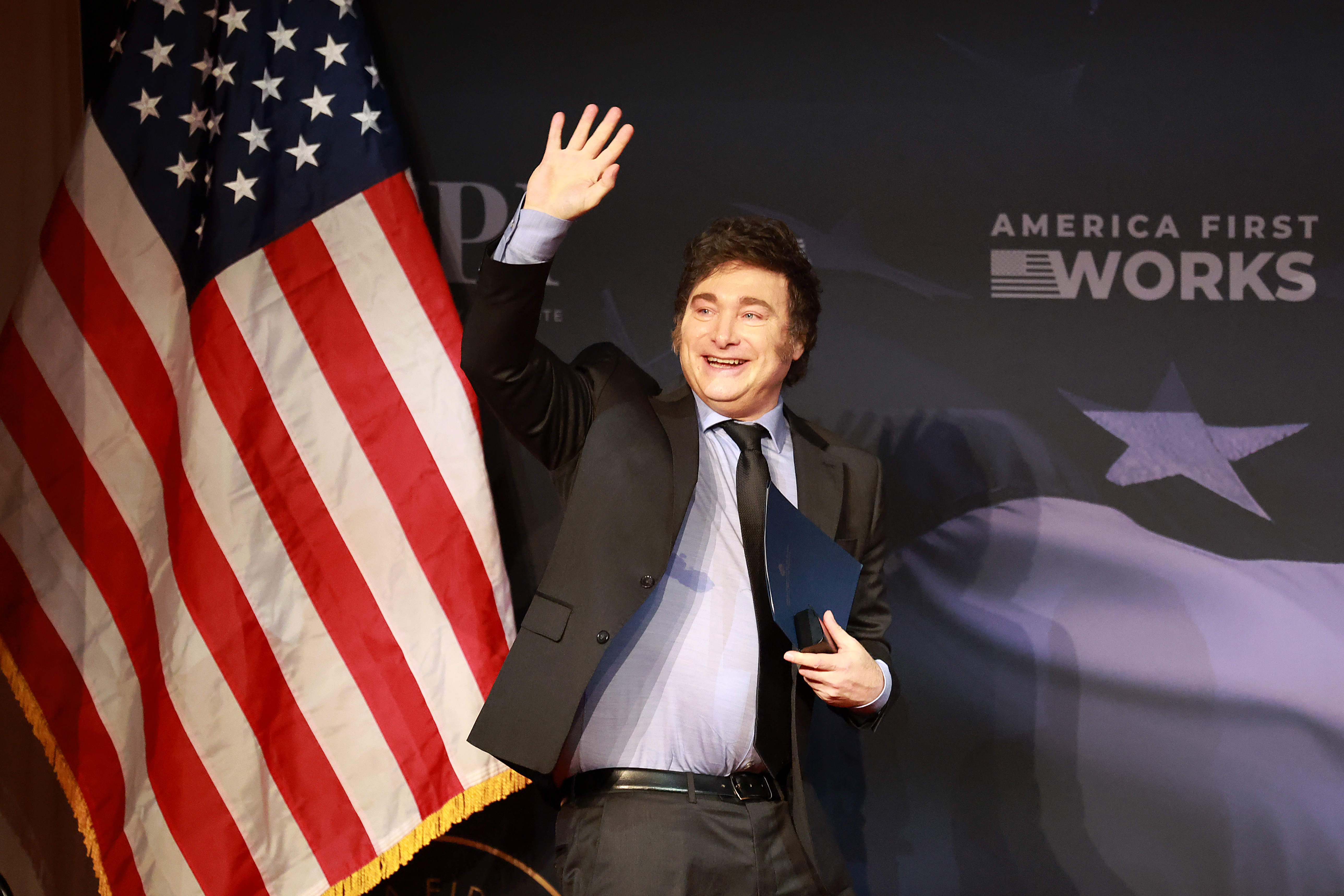What to Know
- President Trump has weathered criticism during past inflection points in his presidency and may do so again
- Polls have found that support among his core backers has stayed strong through all of the upheaval
- But this time he's been accused of being weak, which is core to his image, says Democratic strategist Margie Omero
President Donald Trump’s refusal to publicly condemn Russian meddling in the 2016 presidential election until a wall of bipartisan criticism forced a series of White House walk-backs appears to be following a familiar script.
Possible pivotal points in his presidency leave his supporters unfazed as Trump breaks norms, forcing his advisers to struggle with the fallout.
"I could stand in the middle of Fifth Avenue and shoot somebody and I wouldn’t lose voters," Trump famously said during a 2016 campaign rally.
Yes, each time Trump has weathered the criticism. Will it be any different now?
“The only honest answer to that question is ‘Who knows?’” said Whit Ayres, the president North Star Opinion Research and an adviser to top Republicans. “Past controversies that would have sunk most presidents have had no significant effect on this president's job approval. So until there is hard evidence to the contrary, the safest bet is that this will have no effect as well.”
The latest uproar began during a press conference on Monday with Russian President Vladimir Putin when Trump declined to denounce election interference that U.S. intelligence agencies say was meant to benefit him over Democrat Hillary Clinton. Nor would he warn Putin against doing it again, instead repeating conspiracy theories about Clinton and the Democratic party's computer servers.
U.S. & World
News from around the country and around the globe
“My people came to me, Dan Coats came to me and some others and said they think it’s Russia," Trump said. "I have President Putin. He just said it’s not Russia. I will say this. I don’t see any reason why it would be.”
The next day, after blistering criticism from even some of the president’s most reliable supporters, Trump told reporters he had meant to say “wouldn’t be.”
“The sentence should have been, 'I don’t see any reason why it wouldn’t be Russia.' Sort of a double negative,” Trump said.
But even then, he contradicted U.S. intelligence agencies' assessments again by ad-libbing that others could be responsible, too — a claim he has made repeatedly and one not backed by the assessments.
On Tuesday, another Republican pollster, David Winston, called that clarification in a Roll Call op-ed “probably the best we’re going to get.”
“But Trump’s grumbling comments, his ramblings about emails, servers and rogue FBI agents, and most important, his attempt to create a moral equivalency between our intel agencies and the actions of Russia, leaves most outside observers shaking their heads,” wrote Winston, the president of The Winston Group and an adviser to congressional Republicans.
Trump’s presidency has been a series of flare-ups: the rollout of the travel ban, separation of migrant families at the U.S.-Mexico border, support for Alabama Republican Roy Moore, who lost his U.S. Senate race after women came forward accusing him of sexual misconduct, Trump’s waffling over condemning white supremacist marchers in Charlottesville, Virginia, and calling Haiti and some African nations: “sh--hole countries.”
Polls have found that support among his core backers has stayed strong through all of the upheaval. For example, an NBC News/Survey Monkey online poll in May found that although 22 percent of Republicans say they believe Trump tells the truth only some of the time, more than half of them, or 56 percent, still approve of his work as president.
After the Helsinki summit, according to a CBS News poll released on Thursday, only about 32 percent of Americans approved of Trump's performance and 8 percent of Democrats. By contrast 68 percent of Republicans thought he had done a good job.
Crucially, among independents, only 29 percent were happy with the president.
A Reuters/Ipsos poll also conducted after the summit found that 42 percent of registered voters said they approved of Trump's performance in office, in line with a daily average of between 40 to 44 percent this month. Only 32 percent of Republicans believe that Russia tried to influence the U.S. election, compared to 84 percent of Democrats, according to the poll, released on Tuesday.
Margie Omero, a principal at GBA Strategies who has worked with hundreds of Democratic candidates, said she thought the current controversy was different from earlier ones in that those reinforced what was known about the president —that he uses hostile rhetoric when he talks about immigrants, women or communities of color.
In Helsinki, he appeared weak, a pushover who lacked a clear, strategic goal, she said.
“Obviously we’ve known for a long time that Trump has been friendly toward Putin rather than tough toward him the way he is with other world leaders, including our allies, but the display was so over the top and it also went against what his says is his strength, of being tough,” she said.
It remains to be seen whether there will be any long-term damage, she said.
Trump continued the confusion on Wednesday when asked — while reporters were being told to leave the room before a Cabinet meeting — whether Russia was still targeting the U.S.
“Thank you very much, no,” he said.
“No? You don’t believe that to be the case?”
“No.”
White House Press Secretary Sarah Huckabee Sanders later said that Trump was saying “no” to additional questions.
The reporter who asked the question, Cecilia Vega of ABC News, tweeted: “Getting a lot of questions about my exchange with @realDonaldTrump today. Yes, he was looking directly at me when he spoke. Yes, I believe he heard me clearly. He answered two of my questions.”
By Thursday, the White House had announced Trump was inviting Putin to the White House for a second summit in the fall, seemingly defying his critics.
That Mr. Putin could be coming to Washington appeared to be news to Coats. Trump's director of national intelligence seemed stunned when NBC's Andrea Mitchell told him about the invite during a Q&A at the Aspen Security Forum.
"Say that again?" Coats said, leaning in then laughing along with others in the room.
"OK."
He paused.
"That's gonna be special," he said to more laughter.
Perhaps just as astonishing: Coats also acknowledged he was clueless on the specifics of what Trump and Putin talked about when the two leaders were alone together in Helsinki for two hours.
Back in Washington on Thursday, the U.S. Senate made a rare show of bipartisan unity by passing a non-binding resolution 98-0 that the U.S. should refuse to make any former diplomat accused of interfering in Russia's domestic affairs available to Russian investigators.
Senators scrambled for the vote because Trump was considering a Russian request to interrogate former U.S. Ambassador to Russia Michael McFaul and other former and current American officials. Putin had offered in return to let American investigators witness interrogations of 12 Russians named and accused in an indictment Friday of hacking Democrats. Trump had termed the quid pro quo an "incredible offer."
But as the Senate was considering its vote, Trump backed down.
“It is a proposal that was made in sincerity by President Putin, but President Trump disagrees with it,” Sanders said in a statement. “Hopefully President Putin will have the 12 identified Russians come to the United States to prove their innocence or guilt.”
Among the critics of Trump's press conference in Helsinki has been a crucial backer, former House speaker Newt Gingrich, who said the president's performance was "the most serious of his presidency."
“President Trump must clarify his statements in Helsinki on our intelligence system and Putin,” Gingrich tweeted.
“It is the most serious mistake of his presidency and must be corrected -- immediately.”
By Tuesday, Gingrich was tweeting approvingly of Trump's walk-back, writing that the president had done the right thing by clarifying his comments and reiterating his support for Coats and the intelligence community.
“President responded quickly and clearly once he realized he had used the wrong language,” he wrote.
And Gingrich turned again to criticizing former officials for failing to stop the Russian meddling, among them the former director of national intelligence, James Clapper, the former head of the CIA, John Brennan, and the fired FBI chief, James Comey.
Omero, the Democratic strategist, said Trump’s performance has been problematic for Republican leadership, his intelligence and security staff and for Republican candidates who are not sure how to speak to voters about Trump. That was part of the reason Trump tried to reverse course, she said.
“They seem inauthentic because in order to show support for their president they have to stand by embarrassing behavior and completely incomprehensible walk-back,” she said.
Winston wrote that Trump was at a crucial point in his presidency.
“He can listen to the criticism of his Helsinki comments, learn a hard lesson, rein in his shoot-from-the-hip instincts and lead — or not, and put his leadership at risk,” Winston wrote.



